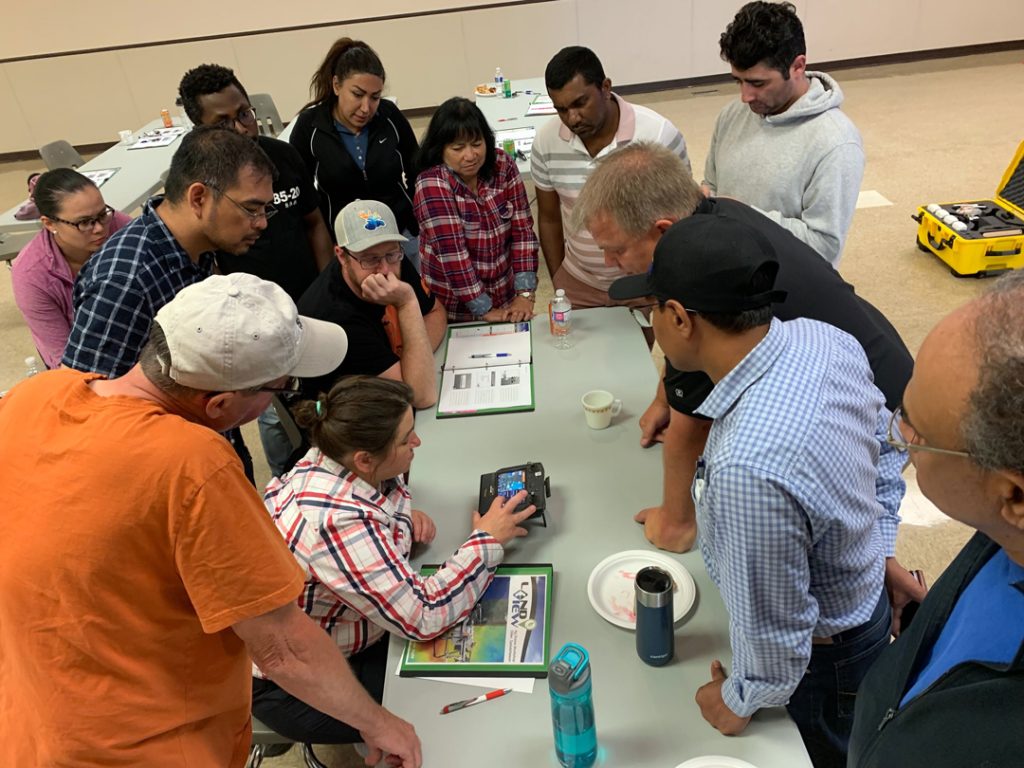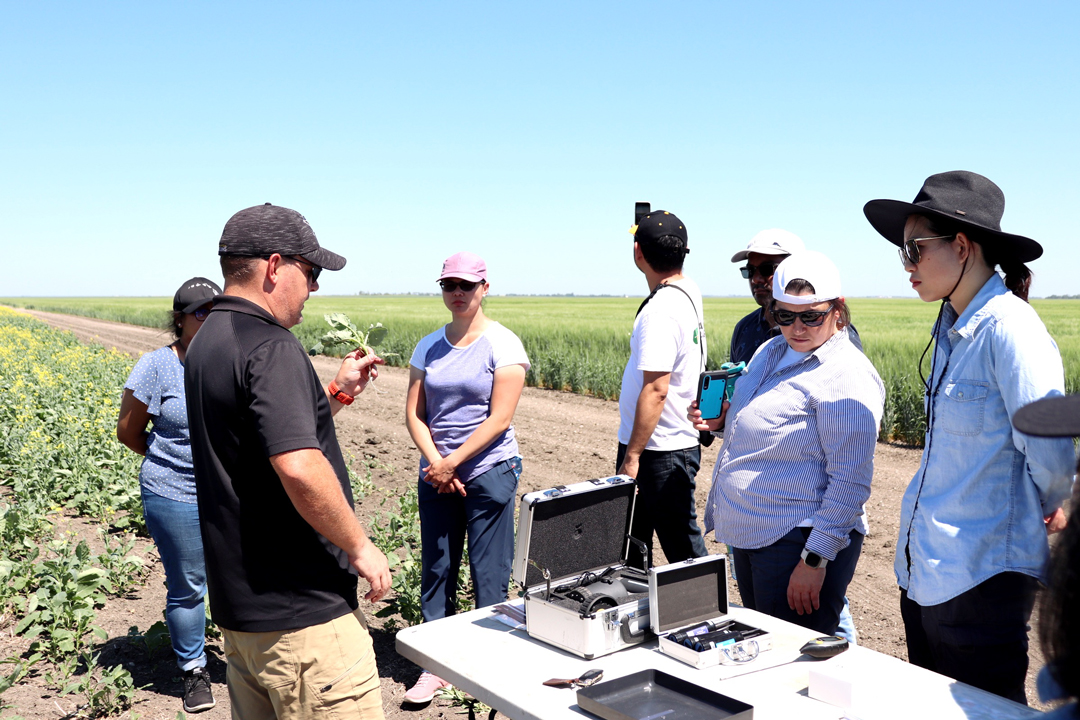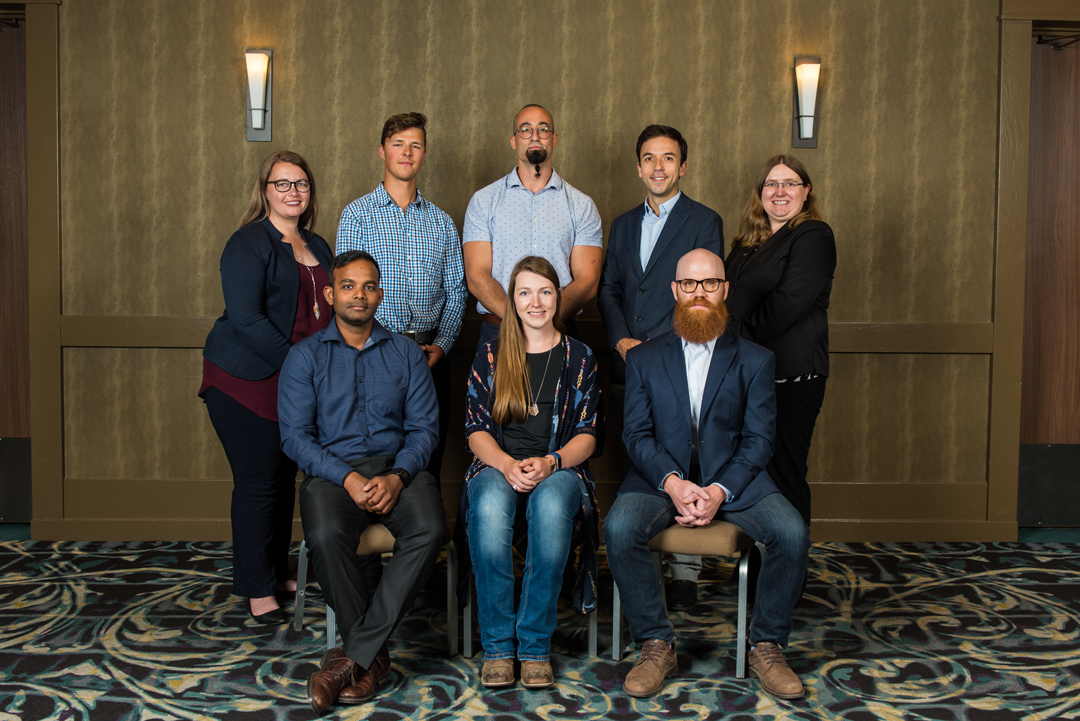TRAINING PROGRAM TARGETS LABOUR GAP
BY IAN DOIG • SPONSORED BY PALETTE SKILLS
Now in its second year, the Palette Skills Automation and Digital Agriculture Specialist Program is intended as a gateway for much-needed, skilled digital professionals to enter the agriculture sector. The eight-week Digital Agriculture course is funded by the federal government and the Enterprise Machine Intelligence and Learning Initiative. Open to post-secondary graduates with minimum three years of work experience, it includes subjects such as AI, big data, drones, GIS, IoT and robotics.
Applications are due August 4 for the next Alberta course intake, which launches August 21.

GrainsWest: How was the Automation and Digital Agriculture Specialist Program curriculum developed?
Ednali Fertuck-Zehavi, program manager: We did in-depth interviews and a lot of data analysis with agriculture and agri-food industry representatives to understand the tremendous labour gap in this area, especially on the Prairies. We saw the real pain point is automation, digitization and data implementation in agriculture and agri-food because there is intensive growth. Because it has grown so rapidly, it’s very hard to find people who understand technology and also have a deep understanding of the agri-food sector.
It has often been said entry-level people are needed. What really is missing, is the mid-level specialists and experts. It’s a sector that’s heavily reliant on science and technology because of its rapid growth and development.
GW: What problems has this created?
EFZ: In recent years there has been tremendous investment within the industry out of necessity, but there is a major labour gap. It’s like purchasing multi-million-dollar equipment but only using the default function. It puts you at a disadvantage compared to other regions and countries that do have this capacity. We want to grow this capacity on the Prairies. We want to make sure we are competitive and make the best use of agricultural technology.
GW: Can you cite an example of the competitive advantage the industry can gain with better use of digital systems?
EFZ: Take sprayers with sensors to identify how much spraying needs to be done. It’s a lot more environmentally sustainable, and it makes us more competitive because we don’t need to use as much spray.
In agriculture, digital technology is embedded everywhere. On the farm or in agri-food processing facilities, you need to know how to properly implement it and work with it beyond the default setting. The challenge is getting people with those talents into the sector.
GW: Why should a tech professional consider a career in the agricultural sector?
EFZ: The agriculture sector is a surprisingly well-kept secret. Out of necessity, the level of technological adaptation and development is growing very quickly. That’s what makes it so unique. And because it is fast growing, there are really interesting technologies to develop.
Farmers are early adopters. If you come to them with an idea that solves a problem, they will give you the chance to prove this technology can really make a difference. This is something quite unique to agriculture on the Prairies.
There have been a lot of layoffs recently in Canada and around the world in the tech industry. And our program takes people who are underemployed or unemployed, and this is a great opportunity to get back on track. We train them on the main expertise of the agri-food sector. Right now, we’re really focusing on the Prairies.
We also support them. We match them with employers because the program was created by the industry for the industry. With each cohort, we update the curriculum because agriculture is growing rapidly.
GW: Who should consider enrolling in this program and why?
EFZ: We see people from a very wide variety of sectors come into the program. This is an opportunity for them to grow and to find a new career that excites them. They should also be passionate about the idea of automation in the agriculture and agri-food industry. It is an extremely intensive eight-week course. We demand a lot from those attendees.

GW: What topics does the program’s curriculum address?
EFZ: Participants will learn what the industry is all about from the automation and digitization perspective. The first part is job readiness. We also address the labour shortage in agriculture, understanding the needs of the of the industry in depth, and the various job positions in agriculture. It gives an overview for participants so they know what they’re getting into.
The program dives deep into understanding the agriculture sector. This includes training in business development skills. We talk about supply chain principles, agri-food processing, agricultural best practices and sustainable agriculture. We study insect, weed and disease management as well as the operation of farm machinery, equipment automation and grain handling and storage. We also have the Indigenous approach to land and agriculture.
GW: Are industry representatives involved in the program?
EFZ: We have many organizations and industry partners engaged in building the curriculum. Employers also contribute a lot of their time and donate full training sessions. We hear from industry speakers all along. And as much as we can, we use case studies and hands-on experience. Participants solve real life problems.
GW: What is the individual focus of each of the three program streams?
EFZ: First, the agri-business stream is focused on the value chain, agribusiness development and how that relates to automation and digitalization. It’s a business and management perspective.
The industrial stream is where we see most of the soil scientists, genetics experts and engineers. They are highly trained people from different sectors. Each cohort, we have about 30 per cent engineers with advanced degrees and an average of 15 years of experience. We tell them about how technology such as IoT and precision agriculture is being implemented. For example, in soil management, grain handling and food processing.
With our last cohort, we started an innovation workshop because, constantly, when our attendees are exposed to the challenges of the agriculture industry, they say, “You know what? I can solve it in a better way.” And we let them develop those great ideas and use those transferrable skills, these fresh perspectives they may even have acquired outside Canada. For instance, maybe they have designed a processing facility in another industry, and they can transfer this knowledge.
In the third stream, we see developers, programmers and data analysts from different sectors coming into agriculture. We’re working with a mass amount of data in this industry. It addresses core technology development from the creation of software, apps and data analysis. It’s not just collecting as much data as possible, but deciding what data is most important.
That is a big part of all three streams—how technology supports decision making.
GW: What can students expect from the online and in-person components of the program?
EFZ: Most of our interaction is online, but by bringing our participants to our in-person workshops, that hands-on experience makes all the difference. You need to see the field, the crops and the equipment to understand the industry. We tour food facilities and labs that do data analysis. In machinery demonstrations we see how farm equipment works. We also hold drone workshops. For soil and crop management sessions we take participants to various farms.
We emphasize hands-on learning. For example, one of our industry partners gave our last cohort real data and a real precision agriculture problem to do with soil and crop management. Each student solved it in a bit of a different way. In the industrial stream, as part of a case study, participants may design an agri-food production facility or trouble shoot in an existing one.
GW: How will participants find employment within the agriculture industry?
EFZ: During the program, we have two online networking sessions. We also have in-person opportunities to meet employers. Often, they are hiring for jobs that have not been posted or they’ve posted in the past but could not find the right talent to fill.
Those one-on-one discussions give participants an idea of what it means to work in this industry and what is required of them. It also gives the industry a glimpse of the participants’ unique talents. We’re really pushing industry to hire for talent and not simply to fill a position.
Depending on the size of the company, some can hire based on a conversation, others require multiple interviews. Many are just so excited when they find someone who can finally solve their challenges.
GW: What else should employers know about the program?
EFZ: For employers that want to be our partners, we would love to hear from you. If you have those challenges with labour and technology you don’t know how to solve, reach out to us. We might just match you with the right person to solve your problem.
For more information, visit paletteskills.org/agtech.







Comments